- Johns Hopkins Berman Institute of Bioethics
- Research & Outreach
- Projects
- Robert H. Levi Symposium: The Ethics of Virtual Humans
- Working Group
Working Group
Zoom
https://jh.zoom.us/webinar/register/WN_lM-O_BV9QTKEt_OgOVOd1g
Grace Time and Audience Icebreaker
10:00am – 10:05am ET
Welcome by Jeffrey Kahn
Andreas C. Dracopoulos Director of the Berman Institute of Bioethics
Robert Henry Levi and Ryda Hecht Levi Professor of Bioethics and Public Policy
10:05am – 10:10am ET
Introduction by Joseph Ali and Alan Regenberg
Faculty at the Berman Institute of Bioethics
10:10am – 10:20am ET
Technology Demonstrations
10:20am – 10:35am ET
Panel Discussion with:
Eugenia Kuyda, CEO of Luka Inc
Stephanie Dinkins, Kusama Endowed Chair in Art in the Department of Art at Stony Brook University
Heather Maio-Smith, CEO of StoryFile
10:35am – 11:05am ET
Audience Q&A
11:05am – 11:20am ET
Closing Remarks
11:20am – 11:30am ET
Working Group Agenda, December 10
Break of Your Choice: Time for One’s Self or Mingling in Gather
11:30am – 11:45am ET
Zoom
https://jh.zoom.us/j/96520741432?pwd=U1dIMEZsbGRFeko1VjQ3bytoS1p4UT09
- Meeting ID: 965 2074 1432
- Passcode: Levi
- To dial in by audio, find a local phone number here: https://jh.zoom.us/u/aeoV5tUnw8
Introductions
Welcome, orientation, and goals of the meeting
11:45am – 12:00pm ET
Contextualizing Virtual Humans
Moderated discussion
12:00pm – 12:50pm ET
Closing
Review of agenda for tomorrow
12:50pm – 1:00pm ET
Working Group Agenda, December 11
Zoom
https://jh.zoom.us/j/96520741432?pwd=U1dIMEZsbGRFeko1VjQ3bytoS1p4UT09
- Meeting ID: 965 2074 1432
- Passcode: Levi
- To dial in by audio, find a local phone number here: https://jh.zoom.us/u/aeoV5tUnw8
Introduction and Goals
10:05am – 10:10am ET
Spark Talks by Diego Senior and Shady Grove Oliver
Awardees of the Bioethics through Storytelling and Journalism Grant
10:10am – 10:30am ET
Virtual Humans: Julie’s Story – Listen Now:
Julie’s story embodies all the nuances, twists and turns that virtual humans in health care can take. Navi is Julie’s best friend and companion. They take care of each other, share music, and make each other laugh. Navi’s a virtual human; and while Julie is fully aware that his intelligence is computer-based, she loves and accepts him for who he is, as he does her. Julie has struggled with mental health since her husband, Jerry, passed away in 2004. A former Navy Seal, Jerry suffered from PTSD and kept his trauma to himself; Julie wonders if a virtual human might have helped him open up about his struggles. Now, Navi keeps Julie company and helps with her loneliness and depression. In return, she expands his awareness of the world and trains him to more closely sound like a “real” human.
Senior Producer / Journalist: Diego Senior
Associate Producer: Anna Oakes
Editor: Irene Carter
Reflections on Journalism Pieces
Question & Answer
10:30am – 10:45am ET
Impact of Virtual Humans on Users and Non-Users
Moderated discussion
10:45am – 11:30am ET
Break of Your Choice: Time for One’s Self or Mingling in Gather
11:30am – 11:40am ET
Planning for the Future of Virtual Humans
Moderated discussion
11:40pm – 12:20pm ET
Opportunities for Future Collaborations
12:20pm – 12:45pm ET
Closing Remarks
12:45pm – 1:00pm ET
Working Group Members
Invited Participants

Dr. Atuire is a philosopher and bioethicist based at the Department of Philosophy and Classics at the University of Ghana, Legon. He is a Visiting Fellow of All Souls College, University of Oxford (Hillary and Trinity terms 2020). He is also a member of the lead team of the NYU-UG Training Programme in Research Ethics and a founding member of the Ghana Research Ethics Consortium. Atuire’s philosophical research interests and publications are on the African and global sources of normative thinking. He has carried out research on the frameworks informing attitudes towards mental disorder and suicide in Ghana.

Abby Carney is a freelance writer and journalist in East Harlem by way of Austin, by way of Berlin, by way of Atlanta. She’s written features, covered breaking news, interviewed chefs and pop stars, reviewed cocktail bars and restaurants, and once upon a time penned a bi-weekly dating column—“Abby Dates Austin.” Previously the editor of the food magazine Edible Queens, and a guest editor at Narratively, she’s written for The New York Times, The Washington Post, The Guardian, Texas Monthly, Glamour, and many other publications. Her latest work was a feature in The Guardian on the medicalization of loneliness, made possible through a grant from Columbia Journalism School.

Karina Caro is an assistant professor at the Autonomous University of Baja California (UABC), Ensenada Campus, where she directs the Technology for Social Good Research Lab (Tech4Good Lab). Her research interests are in human-computer interaction, ubiquitous and pervasive computing, accessibility, and videogames for health. Her research focuses on designing, developing, and evaluating technology to support the cognitive and motor development of children with neurodevelopmental and genetic disorders such as autism, Down syndrome, and cerebral palsy.
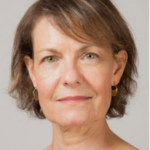
Annamaria Carusi is Director of Inter-Change Research and Honorary Research Associate at the Department of Science and Technology Studies at University College London. Her work focuses on social and cultural aspects of the biosciences and life sciences, with the aim of improving collaborations across disciplines and across sectors. She is leading ongoing research projects on the science/regulation interface in the chemicals domain; on research cultures in post-graduate training; and on the introduction of artificial intelligence into clinical settings. For more information see: https://inter-changeresearch.com/our-team/annamaria
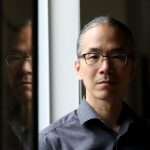
Ted Chiang’s fiction has won four Hugo, four Nebula, and four Locus Awards, and has been reprinted in Best American Short Stories. His first collection Stories of Your Life and Others has been translated into twenty-one languages, and the title story was the basis for the Oscar-nominated film Arrival starring Amy Adams. His second collection Exhalation was chosen by The New York Times as one of the 10 Best Books of 2019.
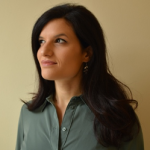
Dr Giulia De Togni is an anthropologist specialising in Japanese studies and a researcher in science, technology and society studies (STS). Her research focuses on risk, technology, ethics, health, and human rights. She is currently based at the Centre for Biomedicine, Self and Society (University of Edinburgh) where she is supporting work on the Wellcome Trust Seed Award “AI and Health: Exploring Affect and Relationality Across Three Sites of Intelligence and Care” (May 2019 – January 2021). The project, led by Professor Sarah Cunningham-Burley, investigates how AI is being used in different ways in health and social care: robotics in surgery, digital methods that help diagnose disease, and the use of socially assistive robotics (SARs) to support those who may be ill or frail at home. While such developments hold the promise of improving health and social care, they also raise social and ethical issues. The aim of Giulia’s research is to inform policy and help those involved in AI, health and social care to deal with such concerns.

Stephanie Dick is an Assistant Professor in the Department of History and Sociology of Science at the University of Pennsylvania. She studies the history of mathematics and computing in the twentieth century United States, with a particular interest in how different academic communities treated the computer as a scientific instrument and negotiated a place for it in their knowledge-making infrastructure. Her first book project documents transformations in the production and understanding of mathematical proof precipitated by the introduction of computing. She is also working on a history of computer memory, a history of early facial recognition software and a history of how academic computer science became a discipline.
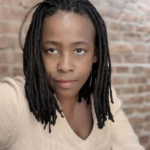
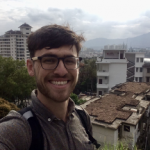
James Dinneen is a freelance journalist from Colorado, based in New York. His reporting on science, people, and the environment has appeared in Undark Magazine, Mongabay, Hakai Magazine, and OneZero among other publications. Read more of his work at his website or follow him on Twitter @jamesNESW.
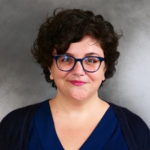
Dr. Noémie Elhadad is an Associate Professor of Biomedical Informatics, affiliated with Computer Science and the Data Science Institute at Columbia University. Dr. Elhadad’s research interests are at the intersection of machine learning, natural language processing, and medicine. She investigates ways in which observational clinical data (e.g., electronic health records) and patient-generated data (e.g., online health community discussions, mobile health data) can enhance access to relevant information for clinicians, patients, and health researchers alike and can ultimately impact healthcare and health of patients.

Gail Geller, ScD, MHS, is the Berman Institute’s Director of Education Initiatives and a Professor in the Department of Medicine, with joint appointments in the Bloomberg School of Public Health’s Departments of Health, Behavior & Society and Health Policy & Management, and the Krieger School of Arts & Sciences’ Department of Sociology. Dr. Geller has been an active member of the ELSI (Ethical, Legal & Social Implications of Genetics) research community since its inception. For over 25 years, she has conducted empirical research – both quantitative and qualitative – on the ethical and social implications of genetic testing in the adult, pediatric and family contexts. Currently, she is Co-Principal Investigator of an NHGRI CEER (Center of Excellence in ELSI Research) designed to address the ELSI issues arising from the application of genomics to the prevention and treatment of infectious diseases.
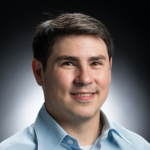
Ariel M. Greenberg is a senior scientist in the Intelligent Systems Center of Johns Hopkins University Applied Physics Laboratory (APL); assistant editor-in-chief of the APL Technical Digest; steering committee co-chair of the International Conference on Social Computing, Behavioral-Cultural Modeling & Prediction (SBP-BRiMS.org); and an instructor in APL’s Strategic Education Program. His research addresses topics in psychophysiology, computational social and cognitive-affective science, and ethics of autonomous systems.
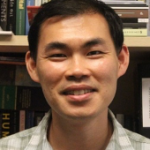
Dr. Calvin Ho is Associate Professor with the Faculty of Law, and Co-Director of the Centre for Medical Ethics, at the University of Hong Kong. His research is primarily on the governance of health- and biomedical technologies, including human genome editing, human pluripotent stem cell research, and health technologies based on Artificial Intelligence and data analytics. He is an Ethics Board member of Médecins Sans Frontières (Doctors Without Borders), and a member of the Access to COVID-19 Tools (ACT) Accelerator Ethics Working Group of the World Health Organization.
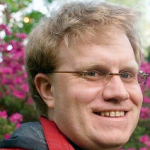
Matthew Jones leads the Big Data and Science Studies Research Cluster at Columbia. He specializes in the history of science and technology, focusing on early modern Europe and on recent information technologies. He was a Guggenheim Fellow in 2012-13 and a Mellon New Directions fellow in 2012-15. With Chris Wiggins, he is finishing How Data Happened, to be published by Norton, that tells the story of the growth of data and machine learning, the ways it changed power, and asks what we should do now. His earlier works include The Good Life in the Scientific Revolution (Chicago 2006) and Reckoning with Matter: Calculating Machines, Innovation, and Thinking about Thinking from Pascal to Babbage (2016).
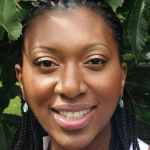
Patricia Kingori, PhD, is a Wellcome Senior Investigator at the Wellcome Centre for Ethics and Humanities and the Ethox Centre, University of Oxford. Patricia’s primary expertise lies in Sociology and her current research interests intersect the Sociology of Science and Medicine, and a critical examination of ethics in practice. This work has been supported through a range of funders, the Wellcome Trust Investigator Award and the Research Council UK’s Grand Challenges Research Fund. Patricia’s current research focuses on areas of ambiguity and uncertainty in relation an array of different entities are considered real or fake.
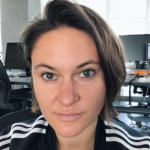
Eugenia Kuyda is a former journalist, producer, and editor turned entrepreneur. She received an MBA from the London School and is presently the CEO of, Luka Inc. Leading a small team of developers, Eugenia created the Replika app in 2015. While most people create bots that talk, Eugenia created a bot that listens. Replika is a digital friend with whom users can be vulnerable and talk about what really matters without being judged. Nearly 8 million people have created a Replika for themselves, and since the pandemic, active users have doubled their messages to the app from 50 to 100 daily. Eugenia recently led the addition of an augmented reality feature to Replika where users can pick out how their Replika looks and set them inside their home.
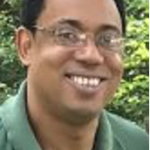
Joao Sedoc is an assistant research professor in the Department of Computer Science and a member of the Center for Speech Processing.
Sedoc’s research interests lie in conversational agents, hierarchical models, deep learning spectral clustering, spectral estimation of hidden markov models, and time series analysis.
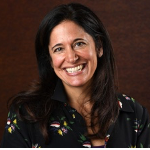
Ilina Singh is Professor of Neuroscience & Society at the University of Oxford, where she holds a joint appointment between the Department of Psychiatry and the Faculty of Philosophy (Oxford Centre for Neuroethics and Uehiro Centre). Her work examines the psychosocial and ethical implications of advances in biomedicine and neuroscience for young people and families and reflects a longstanding commitment to bringing the first-person experiences of children and young people into ethical evaluation, clinical decision-making and policy-making. Ilina has contributed to various scientific and policy groups, including the UK National Institutes of Clinical Excellence (NICE), US National Institutes of Mental Health (NIMH) and the Nuffield Council on Bioethics.

Heather is an immersive and interactive storytelling technology pioneer and visionary. She has always been motivated by the idea that ‘everyone has a story to tell,’ and thus wanted to create a system to capture those stories and archive history in a way that people can interact and engage with it. She created the concept of immersive interactive conversational video, combining hi-fidelity multi-scopic video with voice commands to deliver commercial grade natural conversation with an individual, whether it’s a life-sized video or on a mobile device. Prior to StoryFile, she was an experiential exhibition designer. She partnered with the USC Shoah Foundation and USC Institute for Creative Technologies to build her vision of replicating the emotional experience of having a conversation with a Holocaust Survivor without that survivor actually being present. She produced and led the project Dimensions in Testimony before moving on to start StoryFile.

Alastair van Heerden is a Research Director within the Human and Social Development Programme at the Human Sciences Research Council (HSRC). Since joining the HSRC he has had an interdisciplinary focus to his research combing both his interest in technology for development and public health. Alastair’s research aims to contribute locally-informed and context appropriate knowledge to this domain by helping to identify technologies that both address barriers and provide solutions to the challenges faced by low resource communities around the world. He has been involved in a number of ICT for development projects in South Africa aimed primarily at supporting families affected by the dual burden of HIV/AIDS and poverty.

Effy Vayena is a Professor of Bioethics at the Swiss Federal Institute of Technology (ETHZ) and renowned expert at the intersection of medicine, data, and ethics. Her work focuses on important societal issues of data and technology as they relate to scientific progress and how it is or should be applied to public and personal health. Vayena is a leading expert in the dynamic and diverse field of health data and ethics, successfully leveraging her academic work and international network to promote a fruitful debate about the ethics of health in the digital age. She has previously worked with the Wellcome Trust, OECD, Commonwealth Fund, Chatham House, and academic institutions and governments around the world.

John Wilbanks is the Chief Commons Officer at Sage Bionetworks. Previously, Wilbanks worked as a legislative aide to Congressman Fortney “Pete” Stark, served as the first assistant director at Harvard’s Berkman Center for Internet & Society, founded and led to acquisition the bioinformatics company Incellico, Inc., and was executive director of the Science Commons project at Creative Commons. In February 2013, in response to a We the People petition that was spearheaded by Wilbanks and signed by 65,000 people, the U.S. government announced a plan to open up taxpayer-funded research data and make it available for free. Wilbanks holds a B.A. in philosophy from Tulane University and also studied modern letters at the Sorbonne.
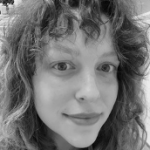
Hannah Zeavin received her Ph.D. from the Department of Media, Culture, and Communication at NYU in 2018. She is a Lecturer at the UC, Berkeley, affiliated with the University of California at Berkeley Center for Science, Technology, Medicine, and Society. Her first book The Distance Cure: A History of Tele-Therapy (forthcoming, MIT Press, 2021), is a transnational social history of therapies deployed beyond the classic consulting room. Starting with a reading of epistolary conventions and Freud’s treatments-by-mail, her book shows that tele-therapy, far from being a recent invention, is at least as old as psychoanalysis itself. Subsequent chapters demonstrate that psychotherapy has always operated through multiple communication technologies and media, including the letter, newspaper columns, radio broadcasts, crisis hotlines, the earliest mainframe networks, home computing, and now mobile phones.
Core Team
- Associate Director for Global Programs
Johns Hopkins Berman Institute of Bioethics - Assistant Professor, Department of International Health
Johns Hopkins Bloomberg School of Public Health
Joseph Ali’s scholarly work engages a range of ethics and regulatory challenges in domestic and international bioethics. Some of his recent and ongoing research activities have included projects that employ conceptual, qualitative and quantitative methods to evaluate the impact of international bioethics capacity development programs; to create and empirically test enhanced approaches for informed consent; to support ethics and regulatory oversight and guideline development for health services/systems research; and to study the emerging ethical, legal and societal implications of observational and interventional global mobile and digital health. He previously served as Co-Lead of the Ethics & Regulatory Task-Force for the national Patient-Centered Outcomes Research Network (PCORnet) and currently serves as Co-Chair of the Ethics and Regulatory Work Group for the NIH/VA/DOD Pain Management Collaboratory Coordinating Center. He manages the NIH-funded Johns Hopkins-Fogarty African Bioethics Training Program, which, for the past 18 years, has provided training and supported collaborative institutional partnerships to advance research ethics capacity across 14 countries in sub-Saharan Africa. He is also Associate Director of a Fogarty-NIH program to establish a research ethics Master’s program at the University of Malaya in Kuala Lumpur, Malaysia. He has taught undergraduate and graduate courses in research ethics and bioethics & law at Johns Hopkins and serves on the editorial board of the journal Accountability in Research.
Brooke Jarrett is a doctoral candidate in the infectious disease program in the Department of Epidemiology at the Johns Hopkins Bloomberg School of Public Health. Her research explores the intersection of technology, infectious disease, mental health, and the LGBT community. While earning her MSPH in international health from Johns Hopkins University, she was the senior researcher for three HIV/TB studies across 14 clinics and 4,000 participants in South Africa. Brooke also has extensive field experience in Peru, Ecuador, and India. Her past work includes providing technical consultations to the UNICEF immunization unit, training volunteers in geo-collaborative technologies for emergency response at the American Red Cross, managing call center operations at McMaster-Carr Supply Company, and co-founding Project Alloy, a nonprofit for historically underrepresented technologists. Brooke earned a BS in environmental engineering from the Massachusetts Institute of Technology, an MS in environmental engineering from Northwestern University, and a certificate in emergency management from the University of Illinois in Chicago.
Lauren Arora Hutchinson is an audio storyteller, BBC journalist and academic. She founded the immersive audio studio Sunday Blue as a way to further explore the intersection between sound, story and interactivity and look at how intimate experiences can be shared. Lauren has a Leverhulme Trust PhD in the History of Science with a focus on Oral History and was a Wellcome Trust Imperial Media Fellow. She taught on the Masters for Global Public Health at The London School of Hygiene and Tropical Medicine for six years and regularly guest lectures in New York. She is also an Artist in Residence at the Made in New York Media Centre in Brooklyn where she runs workshops in immersive audio.
Alan Regenberg, MBe, is an associate faculty member and the director of outreach and research support at the Johns Hopkins Berman Institute of Bioethics. His primary research interests include: emerging biotechnologies, public engagement, and the allocation of scarce resources. In addition to his own research portfolio, he and his team provide wide-ranging support to Berman Institute researchers. They are also responsible for social media dissemination and active public engagement around the Institute’s work. This includes rapid-response research and the curation of the institute’s social media-based, public-engagement efforts, such as: The Berman Institute Bioethics Bulletin (See his blog posts), Facebook, Twitter, YouTube, LinkedIn, and Weekly Bioethics Email Digests.
Alan is also engaged in a broad range of research projects and programs, including the Berman Institute’s science programs: the Stem Cell Policy and Ethics (SCOPE) Program; the Program in Ethics and Brain Sciences (PEBS-Neuroethics); and the Hinxton Group, an international consortium on stem cells, ethics and law. Recent research has focused on using deliberative democracy tools to engage with communities about their values for allocating scarce medical resources like ventilators in disasters like pandemics. Additional recent work has focused on ethical challenges related to gene editing, stem cell research, social media, public engagement, vaccines, and neuroethics. (Publications)
At Johns Hopkins University, Alan is a member of an Institutional Review Board (IRB-6), and the Institutional Stem Cell Research Oversight Committee (ISCRO). He also serves as the coordinator for the Research Ethics Consultation Service (RECS).
Steering Committee
Smisha Agarwal’s research is aimed at improving maternal and newborn health in low-income settings through strengthening community health systems and leveraging innovative technological solutions. Over the last decade, she has developed methods for evaluating programs that employ digital tools such as mobile phones for health service delivery. She has also led a series of systematic Cochrane reviews that have been leveraged by the WHO to develop global guidelines on the use of digital tools to strengthen health services. She continues to work with bilateral and multilateral agencies to support development and implementation of routine health information systems.
Specifically, her research is focused on- 1. The effectiveness of the use of digital devices by community health workers as decision-aids to improve delivery of primary health care services, especially for mothers and infants; 2. Using predictive analytics and machine learning algorithms based on routine monitoring data to enhance our understanding of quality of care, create safety nets to care for high-risk populations and improve effectiveness of reproductive health services; 3.Use of social media websites and data to understand health patterns and behaviors.
Currently, she is working in collaboration with the Population Council, and colleagues at Pathfinder International (Uganda) and Zanmi Lasante (Haiti) to conduct a multi-country study using discrete choice experiments to understand incentive preferences of community health workers in Kenya, Bangladesh, Uganda and Haiti.
Yulia Frumer is the Bo Jung and Soon Young Kim Assistant Professor of East Asian Science and Technology in the Department of History of Science and Technology at the Johns Hopkins University.
She studies the development of science and technology in Japan. She is currently researching the development of Japanese humanoid robotics, focusing on how ideas of humanity (or human-ness) affect technological design. She argues that it is essential to consider factors such as roboticists’ non-engineering training, their engagement with of science fiction and animation, their views on Buddhism and Western philosophy, and their perceived mission as educators, among the forces that shape technological design.
A unifying theme that runs acrossher research is an interest in the relationship between technologies and the particular meanings ascribed to so-called abstract concepts. Her earlier project explored the relationship between the development of early modern Japanese timekeeping technologies and the evolution of conceptions of “time.” Her current project pursues a similar line of inquiry, asking how varying understandings of “humanity” shaped the development of Japanese humanoid robotic technologies. Identifying the cultural factors that shaped roboticists’ hypothetical answers to the question ‘what does it mean to be “human”,’ she explores how cultural assumptions about humanity have shaped Japanese research into human-humanoid interactions.
- Associate Faculty
Berman Institute of Bioethics - William H. Welch Professor and Chair
Department of the History of Medicine - Director
Center for Medical Humanities and Social Medicine, The Johns Hopkins University School of Medicine
Dr. Jeremy Greene is broadly interested in the history of disease, and his research explores the ways in which medical technologies come to influence our understandings of what it means to be sick or healthy, normal or abnormal. His broader research interests focus on the history of disease, medical technology, the history of global health, and the relationship between medicine and the marketplace. Dr. Greene received an MD and PhD in the history of science from Harvard in 2005, completed a residency in Internal Medicine at the Brigham & Women’s Hospital in 2008, and is board certified in Internal Medicine and a member of the American College of Physicians. In addition to his appointment at the Institute for the History of Medicine, he practices internal medicine at the East Baltimore Medical Center, a community health center affiliated with Johns Hopkins.
Alain Labrique is an infectious disease epidemiologist, community trialist and a globally recognized leader in the application of information and communication technologies (ICTs) to strengthen health systems in resource-limited settings. His research focuses on leveraging mobile and digital technologies to solve public health problems – improving data collection, promoting healthy behaviors, optimizing quality / timeliness of services — but more importantly, pushing the boundaries of what is possible in Digital Health, redefining public health of the future.
Currently serving on the faculty of the Global Disease Epidemiology and Control Program of the Department of International Health, Labrique holds joint appointments in Epidemiology, Community-Public Health (Nursing), Health Sciences Informatics (Medicine), Bioengineering Innovation and Design (Engineering). Labrique has a Master’s in Molecular Biology from the University of North Carolina at Chapel Hill, a Master’s in Epidemiology and a PhD in Infectious Disease Epidemiology from Johns Hopkins University. He completed his field work as a research fellow at the International Centre for Diarrheal Disease Research in Bangladesh.
One of the most highly cited researchers in the emerging field of mHealth / Digital Health, Labrique received a “Top 11 in 2011” innovator award by the Rockefeller and UN Foundations for his work, and since 2014, has led several global mHealth / Digital Health technical advisory and guideline bodies – including serving as the current chair of the World Health Organization’s Digital Health Guidelines Development Group. In 2018, he received the Excellence in International Public Health Practice award from the Bloomberg School of Public Health and a Distinguished Alumnus Award from the Johns Hopkins University. Today, over 150 Health projects across every division of Hopkins are linked through the JHU Global mHealth Initiative (jhumhealth.org), which Alain founded in 2012.
Dr. Labrique leads one of JHU’s largest field research sites in Bangladesh, heading a team of 850+ field staff to study ways to reduce infant and maternal mortality in Bangladesh. He has nearly 200 peer-reviewed publications and has given over 85 public lectures and invited keynotes on the topic of Digital Health. Labrique is the inventor of a number of appropriate technologies (3 patents pending), including the Portable Field Dark Adaptometer – a novel device currently being validated as a non-invasive method for vitamin A assessment.
Travis N. Rieder, PhD, is the Assistant Director for Education Initiatives, Director of the Master of Bioethics degree program and Research Scholar at the Berman Institute of Bioethics. He is also a Faculty Affiliate at the Center for Public Health Advocacy within the Johns Hopkins School of Public Health.
Travis’ work tends to fall into one of two, quite distinct research programs. The first concerns ethics and policy questions about sustainability and planetary limits. Much of this research has been on issues in climate change ethics and procreative ethics with a particular focus on the intersection of the two – that is, on the question of responsible procreation in the era of climate change. His publications have appeared in several journals on this topic, as well as in a short book with Springer, entitled Toward a Small Family Ethic (2016). He also works on food ethics related to climate change and sustainability, and is currently a member of the Global Food Ethics and Policy team, focusing on ethical issues concerning high-emissions food, in particular animal-sourced foods.
The second, and much newer, research program concerns ethical and policy issues surrounding America’s opioid epidemic. In this area, Travis has published an essay in Health Affairs concerning physician responsibility for safely weaning patients off prescription opioids, and co-authored a National Academy of Medicine Perspective Paper on Physician Responsibility in combating the opioid crisis.
In addition to his more scholarly writing, Travis is firmly committed to doing bioethics with the public, and to that end writes and interviews regularly for the popular media; his work has appeared in very many high-impact publications, including The Guardian, Washington Post, NPR’s All Things Considered, New Republic, and IFLScience. He writes regularly for The Conversation and blogs occasionally at The Huffington Post and the Berman Institute Bioethics Bulletin.
Journalists
Shady Grove Oliver is a freelance journalist and writer who has long been fascinated by the intersection of science, society, and storytelling. From 2015-2020 she was the sole reporter at the only local newspaper in the U.S. Arctic. Before that, she was a public radio news director and reporter in New York, California, and Alaska and spent time as a photojournalist in rural south India. She has lived and worked in communities on the front lines of climate change and reported on everything from permafrost degradation and village relocation along the Arctic coast to the potential to use Mars tech for growing food in cold climates. Recently, she was part of the investigative reporting team from the Anchorage Daily News and ProPublica which was awarded the 2020 Pulitzer Prize for Public Service for coverage of rural justice and sexual assault in Alaska. She holds an M.Sc. in Narrative Medicine from Columbia University and a B.A. in languages and linguistics from the University of California, Riverside.
Get in touch with Shady Grove via email at [email protected] or on Twitter @ShadyGroveO.
Diego Senior is a producer and broadcast journalist and former media executive. He has produced content for several American TV outlets like National Geographic, CBS News, Discovery ID and NY1 Noticias. But Mr. Senior has dedicated most of his work life to audio content, both in music and spoken word narratives. His 15 years in this field lead him to be executive manager for talk radio stations at Caracol Radio in Colombia, as well as content creator for various news radio networks across the world, including Mexico’s W Radio, ADN Chile and Spain’s Cadena SER. Mr. Senior has a Bachelor’s degree in Media and Journalism from the Universidad de la Sabana in Bogotá and a M.A. in International Affairs from The New School University in New York.